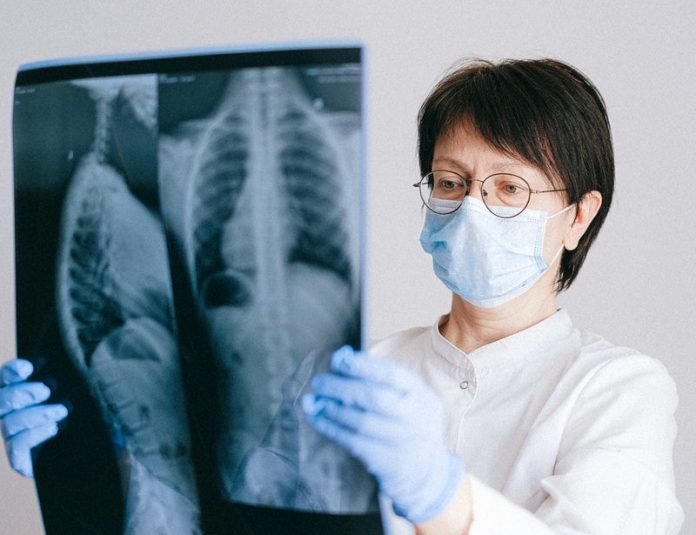
While many infections with the COVID-19 virus are mild or even asymptomatic, the disease can become life-threatening, especially in older people.
In these severe cases, other organs such as the heart or kidneys can be affected in addition to the lung.
In a recent study at Kiel University and elsewhere, researchers found that the release of immature precursor cells from the bone marrow into the blood shows a particularly severe course of the disease and could contribute to COVID-19 complications.
The study is published in the journal Immunity. One author is Professor Philip Rosenstiel.
Previous studies have found that damage to small blood vessels and over-activated blood clotting are decisive factors for a severe course.
One of the most common direct causes of death from COVID-19 is blood clots in the lungs.
In the study, the team examined blood samples from COVID-19 patients who were hospitalized at the university hospitals in Kiel, Bonn, Cologne, and Nijmegen.
In 14 patients, circulating blood cells were analyzed in a time series. Blood samples from healthy people were used as a comparison.
The researchers analyzed hundreds of thousands of cells in parallel with the help of so-called single-cell genomics and were thus able to identify rare cell types.
Together with other data, they were able to create a kind of fingerprint, a signature, of the altered functioning of these cells and track it over time.
The team found signatures of two immature cell types that are particularly characteristic of severe COVID-19 disease: platelet precursor cells, so-called megakaryocytes, and immature red blood cells.
The scientists gained important insights from a group of 39 COVID-19 patients who had been treated in the intensive care unit in Nijmegen, i.e. had particularly severe courses of disease.
In this group of patients, a signature of the megakaryocytes and red blood cell progenitor cells was particularly strong in patients who died of the disease compared to patients who recovered.
The megakaryocytes reflect a well-known COVID-19 problem: blood platelets are responsible for blood coagulation.
The researchers say that the emergency-activated megakaryocytes in the blood may produce platelets that aggregate more easily and thus lead to coagulation problems.
The increase in red blood cell progenitor cells indicates a lack of oxygen and is known as an emergency reaction in severe lung diseases.
This study would enable the team to improve the care of particularly severely affected patients more strongly.
Copyright © 2021 Knowridge Science Report. All rights reserved.



